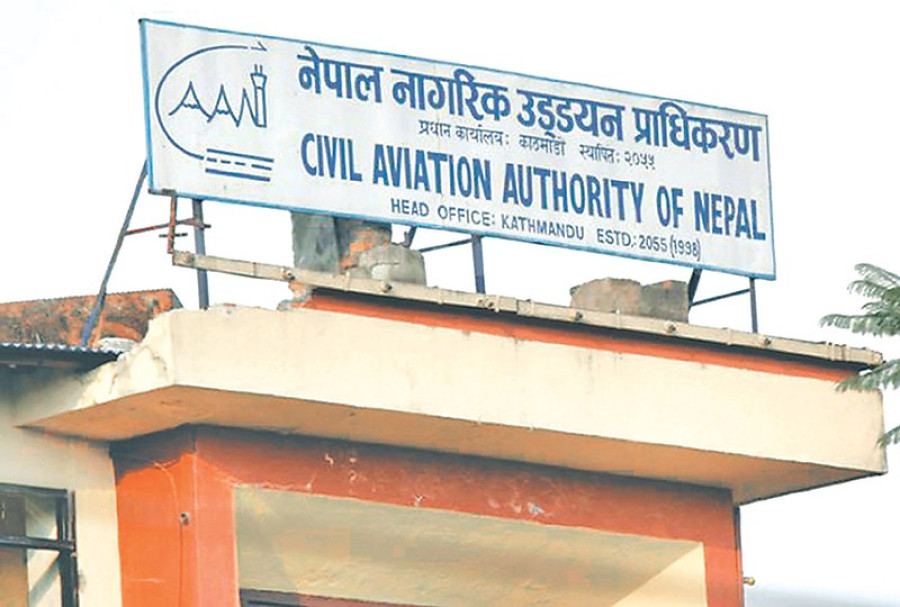National
Any Nepali can aspire to be civil aviation chief, says draft bill
Previously, potential candidates had to be deputy director general of the aviation authority or joint-secretary in the Tourism Ministry.
Sangam Prasain
The government plans to overhaul the prevailing hire law and allow any Nepali citizen to apply for the post of director general of the Civil Aviation Authority of Nepal.
Previously, potential candidates had to be a deputy director general of the aviation authority or joint-secretary in the Aviation Department of the Tourism Ministry.
A draft Civil Aviation Bill that is expected to be sent to the Cabinet next week says that any Nepali with the right qualification can aspire to the top spot at the aviation authority, according to two Tourism Ministry sources who wished to remain anonymous. The main idea of the proposed legislation is splitting the aviation authority into regulator and service provider.
Applicants for the post of director general of the Civil Aviation Authority of Nepal should have 15 years of experience in the aviation sector.
“There are many deserving Nepalis who have work experience in reputed firms like Airbus, Boeing and other global aviation businesses. The new law will allow them to compete for the post too,” one high-level source at the Civil Aviation Authority told the Post. “This will create a level playing field.”
Last July, the Cabinet gave the go-ahead to the Tourism Ministry to draft two separate aviation bills to break up the Civil Aviation Authority of Nepal.
The ministry had proposed creating three pieces of legislation to run the country’s aviation body—Civil Aviation Authority of Nepal Act, Nepal Aviation Service Act and Civil Aviation Act.
The Nepal Aviation Service Act will govern the service provider that will oversee air services and the country's airports, and a chief executive officer or general manager will be its head. The Civil Aviation Act will govern aviation security.
The legislation envisages integrating previous acts to eliminate conflicts and contradictions at the Civil Aviation Authority of Nepal, which is currently functioning as both regulator and service provider from the same office, and there is no clear demarcation between its duties and organisational structure.
The government has been working on the proposed legislation for the last nine years.
In 2014, Spanish consultancy Ineco prepared the first draft with a $4.2 million funding from the Asian Development Bank following approval from the board of the Civil Aviation Authority of Nepal in 2010.
The proposed law is expected to replace two existing acts, the Civil Aviation Act 1959 and the Nepal Civil Aviation Authority Act 1996.
Due to the delay in passing the legislation, several international aviation safety agencies have even slammed Nepal’s poor progress in ensuring air safety.
Last February, the Tourism Ministry informed the ambassadors of different European countries, including the ambassador of the European Union Delegation to Nepal, about the progress achieved in breaking up the Civil Aviation Authority into two entities, which they said was a prerequisite to removing Nepal from the European Union air safety list.
On December 5, 2013, the European Commission put Nepal on the European Union air safety list for lacking the ability to oversee aviation safety issues. It had asked that the Civil Aviation Authority be fragmented with a clear demarcation of its powers and responsibilities because its dual functions gave rise to a conflict of interest.




 20.12°C Kathmandu
20.12°C Kathmandu















